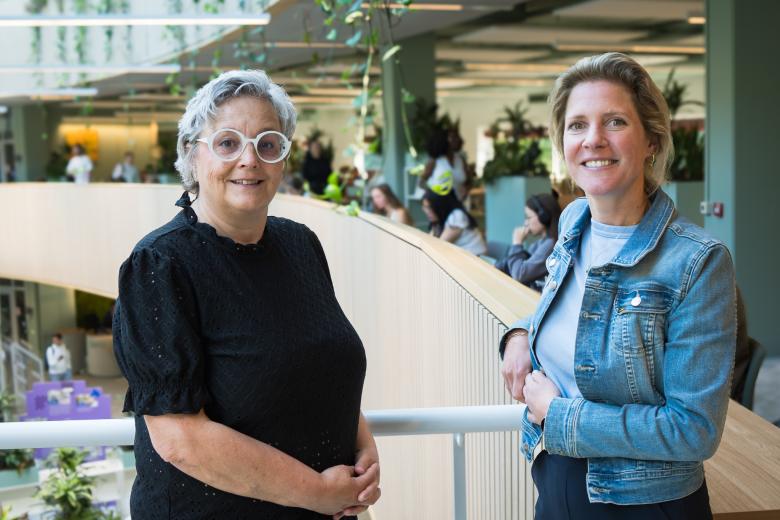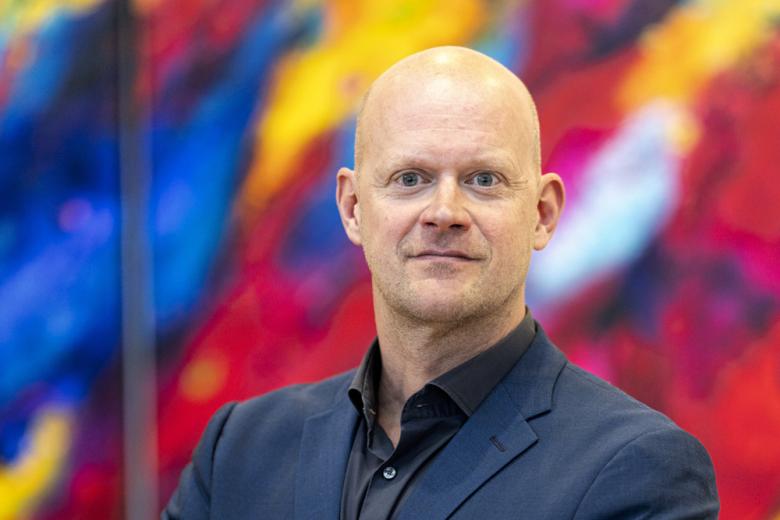Recognizing palliative care needs in patients with advanced heart failure
The tool I-HARP (Identifying Heart Failure Patients with Palliative Care Needs) has been launched recently. This tool facilitates caregivers in the timely identification of palliative care needs in patients with advanced heart failure and their loved ones.
Palliative care and chronic heart failure
Funded by the Netherlands Organisation for Health Research and Development (ZonMw), the I-HARP project aims to improve palliative care for people with advanced chronic heart failure. “Chronic heart failure is a condition with an unpredictable illness trajectory”, says project leader Daisy Janssen. “Patients often have symptoms with a significant impact on their quality of life (fatigue, shortness of breath, poor appetite, depression, sleep problems and/or frequent urination) that can actually be effectively addressed through palliative care. As this is an unpredictable disease that may lead to sudden death, it’s especially important to have a timely conversation about palliative care needs with heart failure patients rather than wait until the last weeks of their lives.”
Practical instrument
I-HARP is an initiative of the Maastricht University Medical Centre+ (Expertise Centre of Palliative Care) in collaboration with the Radboud University Medical Centre and Maastricht University. The project has three objectives: developing a questionnaire to identify (and address) palliative care needs in a timely manner, developing a training course, and implementing the instrument. They’ve already made great strides, says Daisy. “The instrument has been developed based on interviews and focus groups with all parties involved in palliative care, including patients, relatives, relatives of deceased patients, nurses, general practice assistants, cardiologists, general practitioners, elderly care physicians, and palliative care specialists. We asked all of them what they need. In addition, a literature review revealed which instruments already existed and what we could learn from them. We’re particularly focused on the implementation: what do we need to do to arrive at a successful instrument that will actually be used in practice?”
The heart of the matter
“After identifying their needs and running co-creation sessions with participants from different backgrounds, we ended up with a questionnaire containing thirteen simple questions. The instrument begins with a few warm-up questions like, ‘What is on your mind right now?’ or ‘What do you enjoy?’ These are followed by screening questions about physical and psychological symptoms, what help they need, questions about heart failure or treatment, informal carers, their need to have a conversation about the great questions of life or about financial matters or concerns about the future. Each question comes with a number of suggestions for follow-up questions to deepen the conversation and really get to the heart of the matter. The instrument concludes with advice for health professionals on how to act on the results of the conversation, including documents and guidelines as well as references to other instruments and other health professionals.”
Workshop and e-learning module
The project team also organises workshops. “The workshop is aimed at nurses, nurse practitioners, general practice assistants and heart failure nurses. We discuss the importance of palliative care for heart failure patients, explain how I-HARP works and practice using the instrument together. We also developed an e-learning module to provide an accessible way for people to learn more about palliative care.” Daisy concludes, “Essentially, I-HARP is about seeing the person behind the patient again. It’s about getting back to basics and providing person-centred care. At the same time, we realise that health professionals face heavy workloads. I-HARP attempts to meet everyone’s needs and preferences as much as possible with practical tips and advice. It could prevent a lot of distress, benefiting patients and their loved ones as well as health professionals.”
Text: Margo van Vlierden
Translation: Maud Bovelander
Would you like to know more about the I-Harp tool? Visit the website of the Expertise Centre Palliative Care MUMC+

Also read
-
Study Smart gets Dutch Education Premium
Maastricht University's (UM) interfaculty educational innovation project Study Smart is one of the three winners of the Dutch Education Premium 2025. This was announced on Tuesday during the Comenius festival in The Hague.

-
Randwyck Library and the river of knowledge
Monique Notermans and Meike Kerkhofs-Welkenhuizen witnessed the vision behind a modern library come to life.

-
Is the risk of cancer the same for everyone?
Valery Lemmens (GROW) conducts research on cancer, prevention, and how society is designed for making unhealthy choices.
